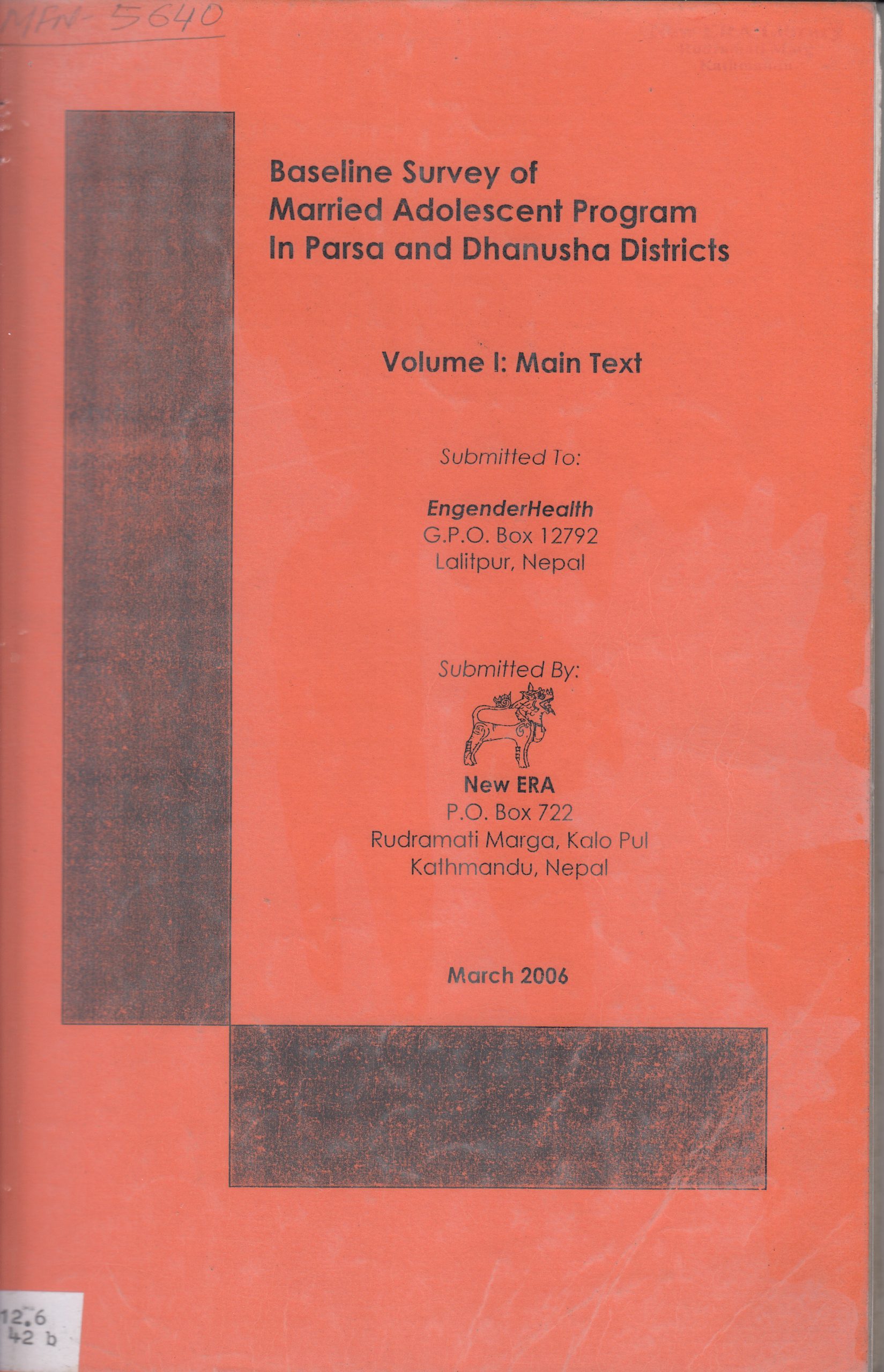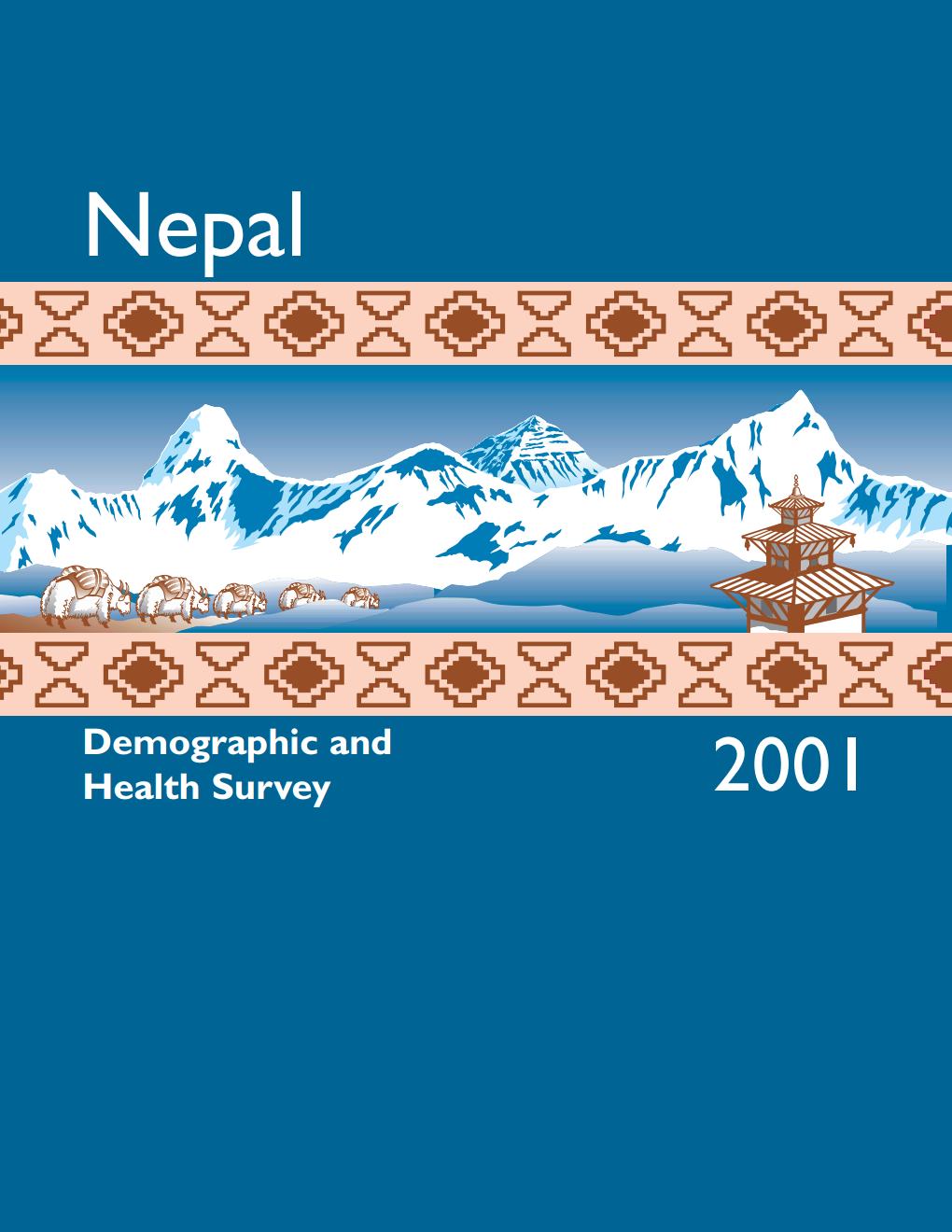EngenderHealth, in conjunction with CARE Nepal and the Nepal Family Health Program (NFHP) was implemented a project to address the needs of young married people in two Terai districts of Nepal: Dhanusha and Parsa. The main goal of the project was to provide reproductive health information, education and services to young married couples through two primary interventions – a peer education program and youth-friendly service delivery training to the service providers. This study contains baseline information about young married people and estimates the population parameters for use in evaluation and monitoring of the project.
Report Type: Reproductive Health
Review of Quality of Women’s Reproductive Health Services in Nepal
This study reviews the situation of women’s reproductive health services in Nepal and looks at the types of interventions that can bring about improvements in women’s reproductive health (relating the supply of services to the demand for them) and estimates the potential impact of these interventions. The study also assesses systems for service delivery and the barriers to good quality reproductive health services for poor women; and identifies successful, innovative, up-scalable methods to improve the quality of women’s reproductive health services in the selected districts.
A Participatory Approach to Adolescent Reproductive Health in Nepal
The project aimed to implement and test the effectiveness of a community based, client-centered participatory approach to improving adolescent reproductive health. This approach directly involved adolescents and the community members central to their lives in defining key issues that have a bearing on adolescent reproductive health and care seeking behaviour, in prioritizing adolescent service needs, in determining service gaps, and in program design and implementation. The project was a joint collaboration between the International Centre for Research on Women (ICRW) and AVSC International and was funded by the Mellon Foundation for a four year term. New ERA and BP Memorial Health Foundation were the local partners of the project.
A Baseline Survey for Population and Reproductive Health Integrated (PARHI) Project in Six Districts of Nepal
The Population and Reproductive Health Integrated (PARHI) Project was implemented by UNFPA in early 2002 in collaboration with the Ministry of Health, the Ministry of Local Development with objective of improving access quality reproductive health services; and to strengthen the capacity of local governance bodies to plan and implement gender sensitive reproductive health programs for the sustainable development of the districts. The study contains baseline information in relation to existing health services and the capacity of local governance bodies to be used to measure the improvement in these services and capabilities after completion of the project
Studies on Contraceptive Acceptance and Use Patterns for Depo-Provera, IUCD, Pill and Norplant in Nepal
This study identifies and explores issues that need to be addressed to increase the availability of contraceptives in Nepal. It explores the dynamics of use of four contraceptive methods: Depo-Provera, IUCD, the pill and Norplant. The study looks at client characteristics, client satisfaction with contraceptive services, supply and demand factors, the continuation rate of these family planning methods and reasons for discontinuation of use. The study findings have been presented in four separate volumes for each of the methods of contraceptives.
Participatory Evaluation of FP + Adolescent Sexual and Reproductive Health Program of Kavre District
In August 2001, ADRA, in conjunction with the District Health Office and the Junior Red Cross Circles of Schools, jointly implemented the Adolescent Sexual and Reproductive Health Program in three municipalities of Kavre District, Banepa, Dhulikhel and Panauti. The main objective of the program was to improve the sexual and reproductive health of adolescents by increasing their access to information and services related to reproductive health. This study assesses the impact of the program in terms of a change in the knowledge, attitude and behaviors of adolescents pertaining to sexual and reproductive health.
Nepal Demographic Health Survey 2001
This survey is the sixth in a series of national level population and health surveys and the second comprehensive survey conducted as part of the global demographic and health survey (DHS) program. The survey contains recent and reliable information on fertility, family planning, infant and child mortality, maternal and child health, knowledge of HIV/AIDS and nutrition from a nationally representative sample of ever-married women and men of the reproductive age. The survey data is comparable to DHS surveys in other developing countries.




